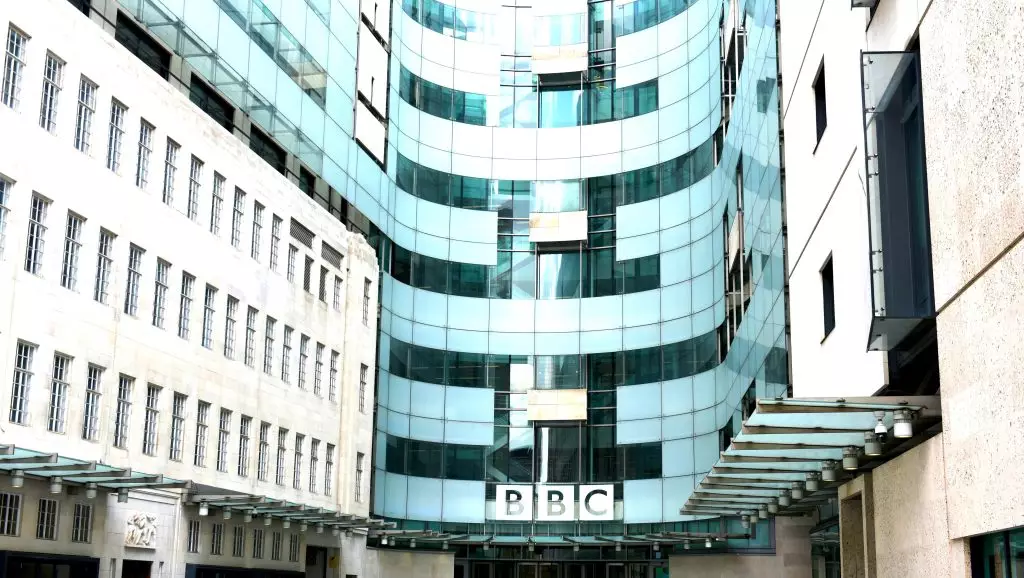The BBC stands as a prestigious emblem of journalism and public broadcasting; however, recent revelations paint a troubling portrait of its internal environment regarding workplace misconduct. Information obtained through a Freedom of Information Act request has unveiled that, over the past three years, the corporation upheld a staggering five sexual harassment complaints, with only one employee facing termination as a result. This raises a critical question: How can an organization that professes to uphold liberal values and advocate for social justice allow such a disparity between policy and practice?
Moreover, the numbers portray a dire pattern within the broader category of harassment and bullying, where a mere 13 individuals faced disciplinary action out of 39 cases upheld or partially upheld in the same time frame. This paints a disconcerting picture—where almost two-thirds of personnel who faced formal complaints have seemingly evaded accountability. Such statistics not only underscore systemic shortcomings but also hinder ongoing attempts to foster a safe and respectful workplace culture.
The Disconnect Between Words and Action
BBC executives, including Director General Tim Davie and chair Samir Shah, have repeatedly emphasized a “zero tolerance” policy towards harassment and abuse. Yet the stark reality unfolding before us starkly contradicts those lofty proclamations. The recent staff survey has further revealed a significant decline in employee confidence regarding the handling of complaints. If just 58% of employees believe that bullying or harassment claims will be taken seriously, what does this signal about the organization’s governance and accountability mechanisms?
Instead of ridding the organization of questionable behavior, it appears that the BBC is potentially perpetuating a culture of impunity where powerful figures may evade serious repercussions for their actions. Davie and Shah have publicly asserted that professionals who breach ethical boundaries should be ousted, but when push comes to shove, it seems that enforcement of such principles varies greatly depending on the circumstances. If the reported statistics remain accurate, the rhetorical commitment to dismantling toxic behaviors seems futile without tangible and effective mechanisms in place.
The Broken Grievance Process
An alarming aspect of the grievance process is the prolonged resolution time, averaging 83 days to reach a decision on complaints. This falls significantly short of the 30-day target established following the 2013 workplace culture review. Lengthy procedures not only add unnecessary stress for complainants but can also discourage individuals from coming forward. When victims see a slow and cumbersome process, their trust in the institution’s commitment to justice erodes, leaving a painful void in their faith in the systems designed to protect them.
It’s disconcerting to think that, in cases where misconduct has been acknowledged and upheld, the BBC’s alternative responses—such as additional training or mediation—might fail to genuinely address the root of the problem. A culture in which individuals receive mere counseling or reminders of proper conduct fails to promote real accountability and can inadvertently reinforce the behavior it seeks to extinguish. External observers may be left questioning whether the BBC prioritizes institutional integrity or merely seeks to maintain a veneer of professionalism.
What Lies Ahead for BBC’s Workplace Culture
The impending release of a new workplace culture review at the BBC is both timely and necessary, especially in light of scandals involving high-profile figures such as Russell Brand and Huw Edwards. As these issues come to light, one can only hope that the organization will not shy away from making sweeping changes to its internal policies. The time has come for a transformation that goes beyond mere words to implement robust and effective mechanisms for accountability.
To rebuild trust among employees and the public, the BBC must treat complaints with the utmost seriousness and ensure that upheld grievances lead to proportionate consequences. It is vital that each individual has the confidence that reporting misconduct will lead to meaningful dialogue and decisive action rather than enabling a legacy of silence. The world is watching; it’s time for the BBC to convert its rhetoric of zero tolerance into a robust reality. An organization of such stature holds a duty to set an example for others—ultimately shaping not only its own culture but also influencing societal norms at large.


Leave a Reply